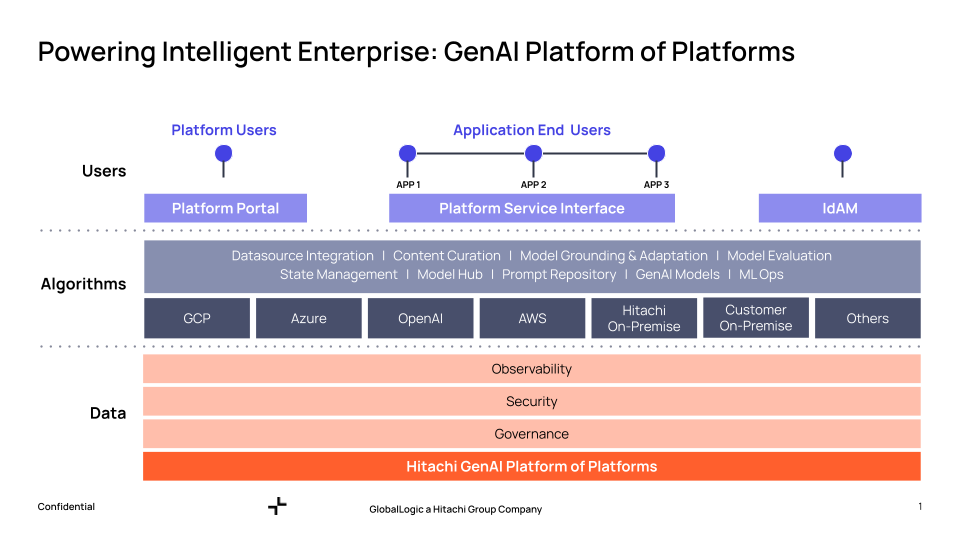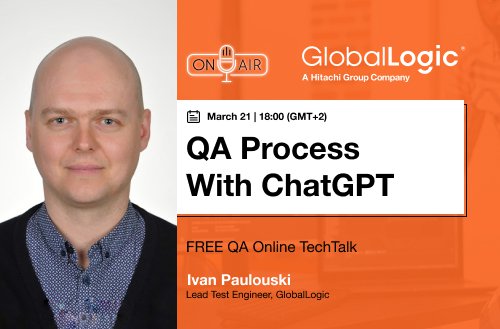Generative artificial intelligence (GenAI) is capturing attention and dominating headlines around the world. When combined with traditional non-generative machine learning and AI, GenAI can disrupt traditional ways of working. Even more significantly, it can enable new products, services, and revenue streams that were previously unimaginable.
As AI innovations continue emerging at a rapid pace, business and technology leaders are challenged to make the crucial leap from GenAI/AI experiments to production-ready applications. Excitement and aspirations are running high, yet obstacles remain. For most enterprises, key challenges include concerns about risk and compliance, organizational resistance to change, and uncertainty about which technologies to implement. Many enterprises are also navigating challenges around repeatability, as it is seldom straightforward to replicate successful GenAI use cases across multiple functions or divisions.
While there are no simple resolutions to these challenges, there are some guiding principles you can follow to increase the odds of success. When evaluating opportunities within your organization, consider adopting these three principles:
- Thoughtful consideration of enterprise objectives and desired outcomes.
- The selection and/or development of AI systems that are purpose-built for your organization’s industry, existing technology, and data.
- An intrinsic commitment to responsible AI.
This article will explore each of these principles—and introduce a technology solution for addressing them with structure and discipline as well as speed and continued agility.
Principle 1: Thoughtful consideration of enterprise objectives and desired outcomes
Each enterprise brings its own strategic objectives and organizational culture as it works to articulate the goals and desired results of investment in AI. Even so, organizations are well advised to start at the top—in terms of who is setting the vision and how ambitious the vision is.
Ask a contact center director about AI opportunities and goals, and you are likely to hear numerous use cases for automating or otherwise improving existing customer support workflows. There can be value in those applications, which may serve as early proof points of GenAI’s value on a small scale. Yet these use cases and applications will probably fall short of AI’s full potential.
A better approach is to consider how AI might be integrated into core products and services in such a way that the need for customer support is substantially reduced. Such investments could produce other returns, too—including greater real-time insights into product usage and end-user behaviors and preferences. In these ways, you can harness AI to transform current and/or develop new products that create additional revenue streams.
Quite simply, AI is like no technology that has come before and will have exponential impacts on how people live and work. Establish an innovation-to-impact cycle that addresses simple, attainable goals as well as a larger plan for harnessing AI. Along the way, use analytics to understand which AI applications are useful, which are falling short of their intended value, and how you might improve performance.
With a bold, aspirational vision—supported by shorter-term milestones—your organization is positioned to maximize AI’s synergies and move forward with speed and confidence.
Principle 2: The selection and/or development of AI systems that are purpose-built for your organization’s industry, existing technology, and data
When hiring people to support your organization, you probably prioritize those with domain experience. After all, new joiners can be trained in your industry, but it’s almost always faster and more effective to find employees who are already fluent in your “language.” The same holds true with AI applications and GenAI models. Open-source large language models (LLMs) are accessible at little to no cost. But because they have been trained on large corpora of generic data, they won’t know your organization’s exact language. Similarly, an application developed for one sector may not offer appropriately robust capabilities to another. We can see the importance of this principle when we consider examples from two sectors: healthcare and automotive.
In healthcare, applications to support patient care need to be trained on clinical data and designed with sophisticated mechanisms for using—but also safeguarding—patients’ personal health information (PHI). GlobalLogic developed a methodology of just-in-time training for sensitive data. Under this approach, the sensitive data is there only when needed, without storing or permanently embedding it into the model. Thus, it eliminates the threat of breaches while attaining the maximum performance and quality of the AI system. This capability is crucial to the success of AI in healthcare.
In the automotive industry, AI can be used to monitor drivers’ alertness and compliance with employer rules regarding smoking, mobile phone use, and so on. When monitoring and collecting images and other data about drivers, privacy remains a key consideration. Beyond that, however, the automotive industry demands expertise in orchestrating AI-powered processing between the edge and the cloud, highlighting the need for proper data and AI governance, as well as processing pipelines. In addition to using traditional methodologies for ensuring data privacy, GlobalLogic is at the forefront of novel privacy-preserving computation methodologies.
Principle 3: An intrinsic commitment to responsible AI
The European Union is leading the way on AI regulation, with the Artificial Intelligence Act and the Digital Operational Resilience Act (DORA). While the EU is the first to finalize sweeping AI regulations, it will not be the last. Organizations are navigating significant uncertainty as other jurisdictions continue exploring and establishing legal and regulatory requirements. Of course, the need for ethical, responsible, and safe AI is more than a regulatory requirement—it’s also a business imperative.
When evaluating potential partners and applications, work to implement an enterprise-wide approach to AI governance. After all, it would be inefficient, expensive, and risky to establish and maintain different security, privacy, and other mechanisms for each AI use case or application that you deploy.
From our perspective, observability—the ability to monitor, study, and generate insights from your AI systems—is the key enabler. You need transparency around who is using your systems and how they’re using them, what output your models are generating, and what you’re spending to support your various AI applications. With a focus on responsible AI (and the support of the AI performance analytics discussed under the first principle), you can address priorities around compliance as well as cost.
An architecture and solution for addressing the three principles
GlobalLogic has been working to bring these principles to life with Hitachi. We have designed and are building Hitachi’s GenAI Platform of Platforms—a runtime environment that is empowering Hitachi and its customers to achieve responsible, reliable, and reusable AI and GenAI capabilities.
This solution is called a “Platform of Platforms” because it makes it possible to orchestrate an optimal combination of platforms, applications, and models. We have built this environment on a foundation of security, governance, and trust—all of which enable the observability that is essential to the third principle.
Hitachi’s GenAI Platform of Platforms enables an optimal mix of capabilities: open-source and proprietary models whether from hyperscalers or startups, industry-specific applications, along with on-premise applications running on Hitachi iQ GPUs. This flexibility makes it faster and easier to leverage industry-specific models and applications—and achieve synergies when they can work with other solutions. The GenAI Platform of Platforms also features templates for apps to help accelerate implementation. These include a variety of applications for knowledge management, customer service, and field service, as well as accelerators to improve the software development lifecycle (SDLC).
Above all, this approach is delivering a solution for bringing the first principle to life—so Hitachi can confidently pursue an ambitious vision for AI-powered innovation for itself and for its customers.

Conclusion
Hitachi’s GenAI Platform of Platforms is guiding production-ready implementations of responsible, reliable, and reusable GenAI in multiple Business Units and Group Companies. But this solution isn’t unique to Hitachi—GlobalLogic is offering it to other clients as they work to unleash the full potential of AI and GenAI within their organizations. We have been building AI systems for more than a decade and using GenAI technology for over three years. We offer data expertise across embedded systems, on-prem systems (with the help of NVIDIA-based solutions, such as Hitachi iQ), and in the cloud with our hyperscaler partners. With our breadth of experience and expertise, GlobalLogic is the right partner for large-scale implementations that span everything from niche use cases to ambitious and transformative AI enterprise projects.
Learn more at GlobalLogic.com/Generative-AI.
 Case StudiesGlobalLogic
Case StudiesGlobalLogic



